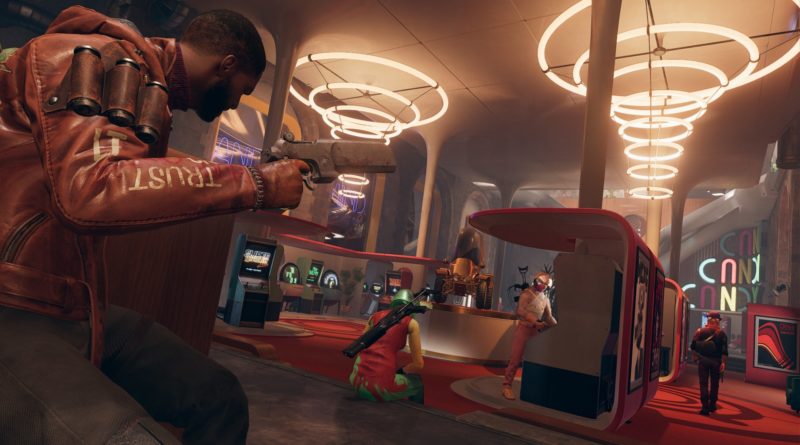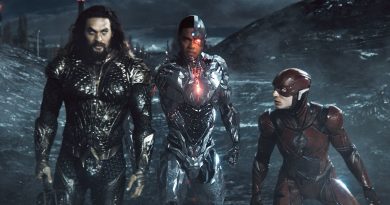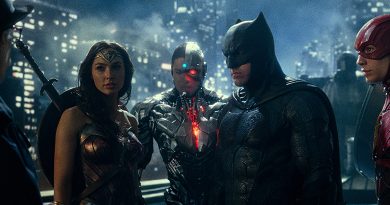‘Deathloop’ Review: One of the Year’s Best Games
Finding a good game to play can often seem like a failure-prone endeavor these days as a lot of new games that come out tend to be hampered by technical issues or are simply a bit too boring, content to follow in the footsteps of predecessors without really adding much that’s new or interesting. Arkane Studios is a rare developer for whom I will play whatever their new release is with little hesitation, and likely enjoy it. They have successfully carved out a niche for themselves with the Dishonored games and Prey, building intricate mini-sandboxes for players to cause chaos in while giving each game its own unique identity. Their latest, Deathloop, is another huge success in this vein, bringing with it some fun ideas that make it one of the best games of the year.
Deathloop takes place in the 1960s on the mysterious island of Blackreef, which thanks to the experiments of the AEON Program, is stuck in a time loop where its inhabitants repeat the same day over and over again. This grants them a weird sort of immortality, and allows them to spend every day in a never ending Swinging Sixties-style party. Players assume the role of Colt Vahn, AEON’s former head of security who seems to be the only one who retain his memories between loops, and wants to assassinate the eight leaders of the AEON Program, the Visionaries, in order to destabilize the loop and return everyone to normal life. Standing in his way is Julianna, his successor as security chief, who also retains her memories and wishes to keep the loop intact. In addition, the Visionaries have protocols in place to prevent them from being in the same place at the same time, meaning Colt will have a lot of work to do to kill them all in one day.
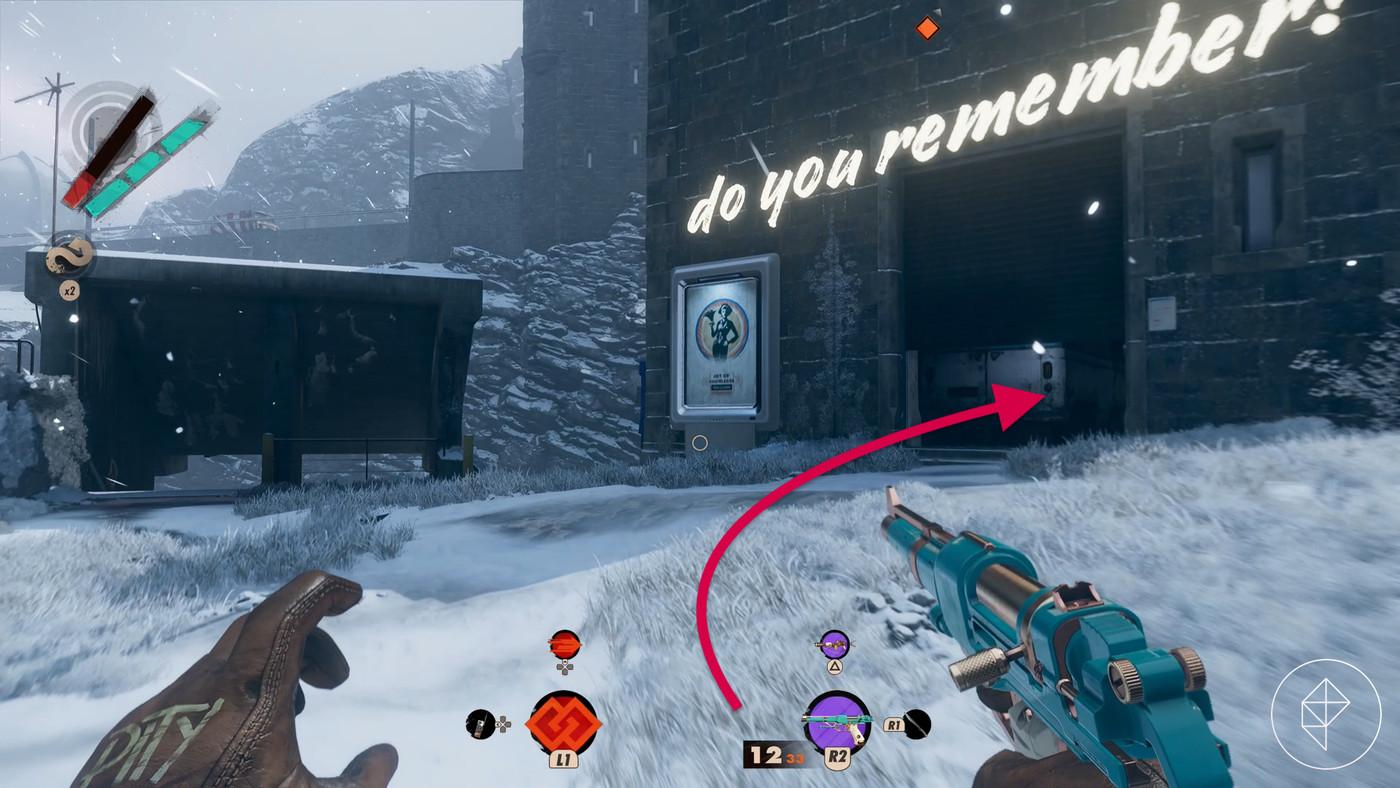
The game is divided into four sandbox-type areas, each of which can be visited at four different times of day. The game requires you to visit all these areas multiple times at various points of the day in order to gather information and put into motion various traps and other initiatives that will reveal the secrets of the island, allow Colt to get better gear, and set up the “perfect loop” where killing all eight visionaries is actually feasible. The design of Blackreef is spectacular, once again showing off Arkane’s knack for interesting world-building. The island is cold and foreboding while covered in colorful structures that look like an Austin Powers‘ 1960s parody mixed with the sci-fi creepiness of They Live. The island is full of artists and psychopaths, whose various brands of deranged creativity are allowed to run wild, resulting in a very cool look and feel for the game. The game also does a good job of incentivizing exploration and making discoveries feel worthwhile, cataloging everything the player discovers so that it can be used later. The player is limited in how much they can do before each time loop resets, and dying three times will automatically reset things. In other games this might be frustrating, to end a loop prematurely or without accomplishing all of one’s goals, but in Deathloop it never is. The end is always on its way, but even seemingly trivial discoveries made before a reset still feel impactful and can be used during the next playthrough.
The gameplay feels very much in line with Dishonored and Prey, mixing first person stealth and action. However the controls for Deathloop are considerably tighter than either of the other games due to the high reliance on gunplay and a need for precision considering the fact that Colt is actually rather fragile and can be killed by one or two NPCs if the player is not careful. Colt also gains access to various powers similar to those from Dishonored and Prey, including teleportation and a kinetic blast, among others, which can be swapped out between various times of day, and help tip the scales in favor of the player allowing for a lot of fun and variability in combat. NPCs are easy to kill but can pack quite a punch, and the Visionaries are a bit tougher. The other big wrinkle to combat is Julianna, who has powers similar to Colt as well as a lot more health, and will show up out of the blue to ruin the player’s day. While she brings an interesting twist to the game, she can sometimes come off as more of a nuisance than a challenge as her appearance will often force all other activities in the game to grind to a halt.
The game has a very interesting story, which is mostly delivered through letters, audio logs, and the occasional cutscene. One of the only faults I have for the game is that relies a lot on the player discovering the game’s story by picking up these logs and letters, when I would have liked to have gotten a few more answers from the game’s final cutscenes instead. The voice acting and writing is all solid, with nothing really standing out as being especially good or bad. However the one aspect that does stand out as especially good is the game’s meta-narrative.
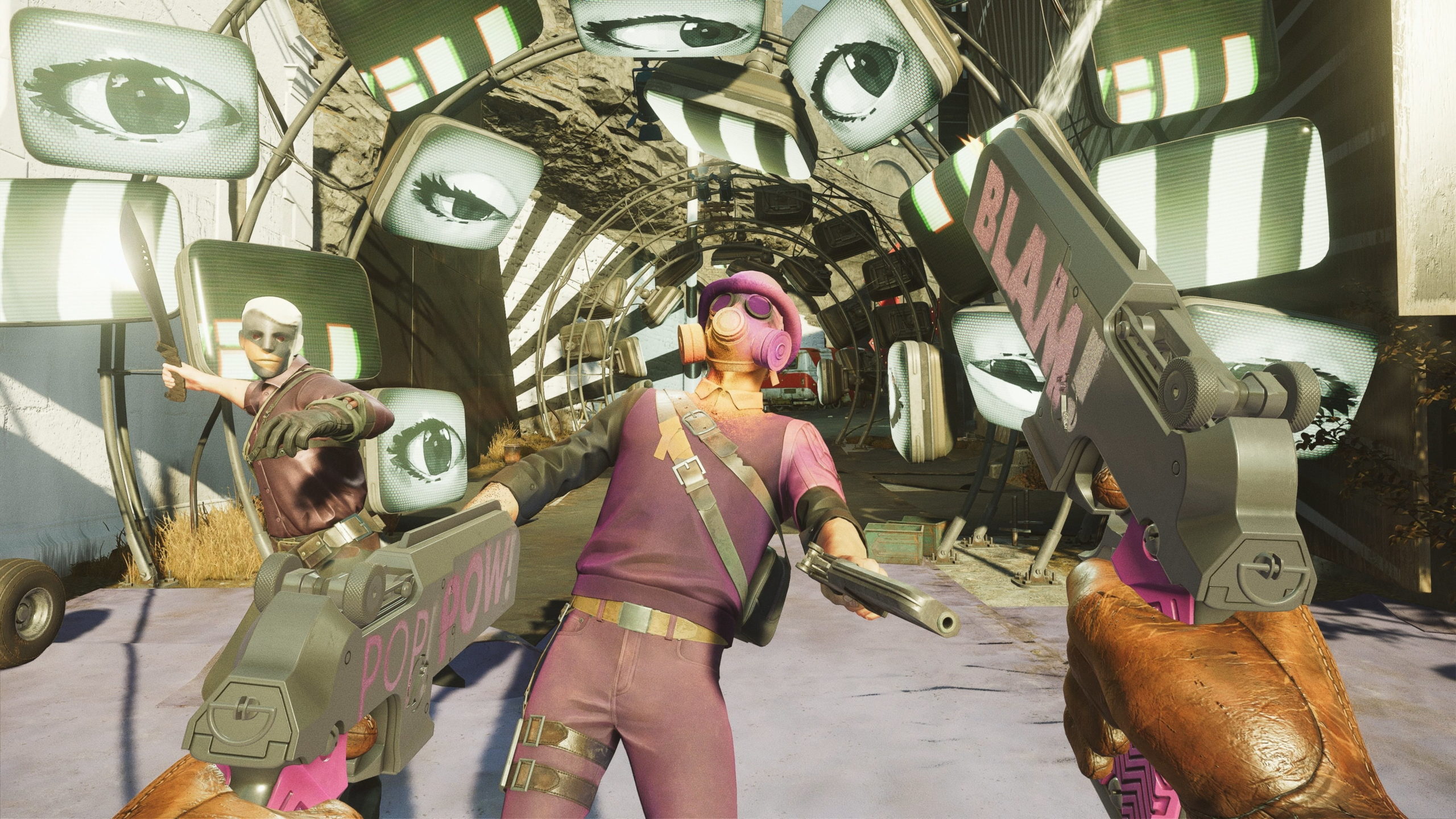
Due to the endlessly repeating day, where the dead will all wake up alive in the morning and the last day’s sins will be washed away only to be repeated again, life itself has lost its meaning for the inhabitants of Blackreef. The Visionaries and the rank and file NPCs are all engaged in a sort of nihilistic hedonism, with no regard for themselves or others, pursuing pleasure at all costs, knowing there is no real risk and no real consequences. Colt, and by extension the player, tries to rise above this and restore the natural order, but in turn also succumbs to this sort of nihilism in the pursuit of this goal. He has no problem killing dozens day in and day out because they will all be back tomorrow. Failure has no meaning because you can always try again. Breaking free of the loop, for Colt, also means becoming part of its culture that he so despises.
Deathloop in this sense can be seen as a kind of allegory for our own lives, as Colt is a sort of everyman surrogate for the average working adult. Just as the people of Blackreef repeat the same day, it can often seem like adult life consists of repeating the same routines over and over: wake up, get ready, commute to work, do your job, eat your meals, commute back, and go to sleep. The lives of most adults consist of endless routine, and activities and people that are life-giving or give one a sense of meaning: friends, family, hobbies, sports, art, etc., are often relegated to being a sideshow in favor of work and productivity. As I recall, Nine Inch Nails has a hit song about this very thing. In this sense, everyday life can become drained of purpose and give way to the kind of nihilism that permeates Deathloop, leaving people, like Colt, who is painfully aware of this predicament, yearning to break free and return to a life where things “matter”, despite not totally knowing what that really means or what it entails.
Deathloop is a fantastic game. It’s a lot of fun to play and brings to bear really interesting ideas in terms of both gameplay and its narrative. It looks, sounds, and feels great, and my experience with it was almost technically immaculate. I did experience one crash, which is frustrating since the game doesn’t autosave and there is no manual-save function either: the game only saves when you advance time forward. But while the crash had wiped out a bit of progress, it was no great loss, as failure and repetition is baked into the fabric of the game itself. In the end, it didn’t matter, just try again tomorrow.

